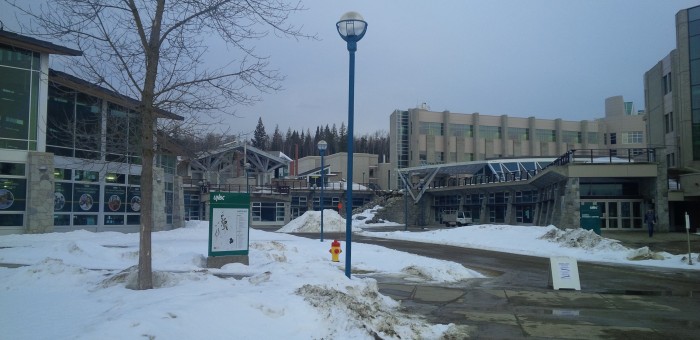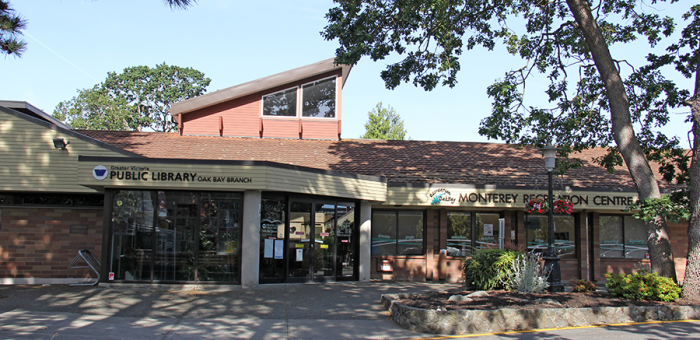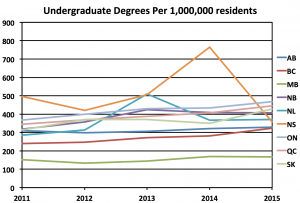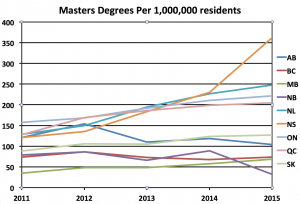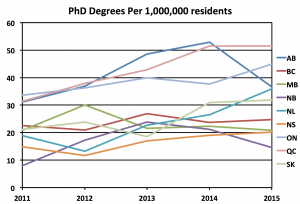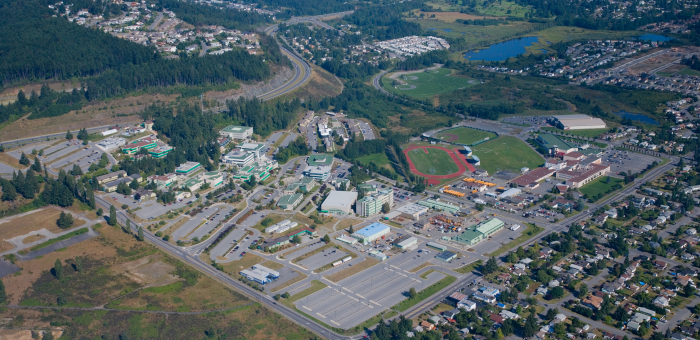Advanced Education
The Okanagan’s emerging digital entertainment & interactive media industry
Today in the legislature I rose to question the government about the unfortunate consequences of amendments to legislation that were passed in the spring of 2016. One company, Bardel Entertainment Inc, was affected to the tune of $5 million because of the retroactive application of these amendments to June 2015. This comes at a critical time when industry leaders are partnering with Okanagan College, UBC Okanagan, school district 23 , and the Vancouver Film School to develop a hands-on training program to position Kelowna as a leader in the new economy.
Below I reproduce the video and text of the Question Period exchange.
Video of Exchange
Question
A. Weaver: In 2012, Bardel Entertainment, one of the world’s leading animation service providers, opened a small regional office in Kelowna.
In doing so, they took advantage of regional and distant location tax credits brought in by the B.C. Liberals in 2003 and 2008 respectively.
After growing to 50 employees and securing a number of major foreign contracts, Bardel opened its new state-of-the-art animation studio in downtown Kelowna on October 1, 2015.
On March 1, 2016, government introduced amendments to Bill 10, Budget Measures Implementation Act. The amendments made substantive changes to the calculation of the regional and distant location tax credit. The changes were retroactive to June 26, 2015. Remarkably, during committee stage, the then Minister of Finance said this was: “Rather technical amendment that refers to the deletion of a couple of words that, frankly, were the result of a drafting error.” Well, the substantive changes had the effect of singling out Bardel and costing them $5 million.
My question to the Minister of Jobs, Trade and Technology is this: will the minister take steps to remedy the B.C. Liberal mismanagement of the digital entertainment interactive media sector and ensure that Bardel is not penalized for being caught by a retroactive change in this legislation?
Answer
Hon. B. Ralston: I want to thank the Leader of the Third Party for his question and for his interest in the digital entertainment and interactive media sector. For too long, the former government, the old government, ignored this sector while they focused pretty well exclusively on LNG. This sector creates good jobs while attracting investment to our province, and our government wants to build this sector.
Interjections.
Mr. Speaker: Members, if we may hear the response.
Hon. B. Ralston: Bardel Entertainment, which the Leader of the Third Party has referred to, has shared their concerns with me, and I will be meeting with them shortly — very, very soon. I look forward to discussing this issue and any concerns they want to raise, and I would be happy keep the member updated.
Supplementary Question
A. Weaver: For the first time, Okanagan College launched its two-year animation diploma program this fall. It’s but the first step in establishing the Okanagan as a hub for training and accreditation in the digital entertainment and interactive media industry. Industry leaders like Bardel Entertainment, Yeti Farm Creative, Hyper Hippo and Disney Interactive are partnering with Okanagan College, UBC Okanagan, school district 23 — that’s Central Okanagan — and the Vancouver Film School to develop a hands-on training program to position Kelowna as a leader in the new economy.
In particular, Bardel wants to commit up to $1 million to kick-start and pilot an open badge accreditation for digital media skills training program working with these partners, but the $5 million punitive, retroactive surprise they got from the B.C. Liberals has brought tough times to Bardel in Kelowna.
My question to the Minister of Jobs, Trade and Technology is this: will he commit to working with the Ministers of Education and Advanced Education as well as local industry and educational partners to ensure that the Okanagan emerges as a go-to destination for training and accreditation in the digital entertainment and interactive media industry?
Answer
Hon. B. Ralston: This…. Kelowna as a centre for technology is a growing one. I’ve met recently with Raghwa Gopal, who’s the CEO of Accelerate Okanagan. In a round table, many of the companies that have been referenced were present and expressed their views about the great potential of the technology sector in Kelowna.
I really appreciate the fact that the Leader of the Third Party is raising this issue. I’m hard at work with my colleague the Minister of Advanced Education to deal with those very issues of training. Certainly in Kelowna, Prince George, Vancouver Island and throughout the province, there is huge potential for this sector. We look forward to building this industry in our quest to build a prosperous British Columbia for everyone.
Reintroducing a bill to reform university governance in British Columbia
Today in the legislature I reintroduced a private member’s bill now entitled Bill M204 —University Amendment Act, 2017. The purpose of this bill is to halt the creeping government interference in university governance, an issue I have previously raised.
I provided a detailed rationale for the bill l when I first introduced it in February 2017.
Below I reproduce the video and text of today’s introduction along with the accompanying media release.
Video of Introduction
Text of Introduction
A. Weaver: I move that a bill intituled the University Amendment Act, 2017, of which notice has been given in my name, be introduced and read a first time now.
I’m pleased to be introducing a bill, intituled the University Amendment Act. Universities in this province of British Columbia serve a key role in an economy that is increasingly driven by knowledge, information and ideas. Academic freedom is a fundamental tenet for a culture of learning to succeed and a key part of academic freedom is found in the right to participate in the universities governance. While the role of a board of governors is essential to a university, the governance of a university must also be independent.
It is with this in mind that I bring this bill forward today. This bill amends the University Act to ensure that appointees from the Lieutenant-Governor-in-Council cannot unilaterally set the tone and direction of a university board through having a majority of votes and that the university boards cannot unilaterally appoint a chancellor for their university.
This act also amends the University Act to change the composition — not the powers — of the senate for special purpose teaching universities.
The current composition of the senates of special purpose teaching universities gives the administration of these universities the majority vote. This harms the ability of the senate to keep the academic autonomy of the university at arm’s length from government.
This bill will bring British Columbia into the same university governance standards employed by much of the rest of Canada.
Motion approved.
A. Weaver: I move that the bill be placed on the orders of the day for second reading at the next sitting of the House after today.
Bill M204, University Amendment Act, 2017, introduced, read a first time and ordered to be placed on orders of the day for second reading at the next sitting of the House after today.
Media Release
Andrew Weaver introduces bill to protect the independence of universities
For Immediate Release
October 25, 2017
VICTORIA, B.C. – Andrew Weaver, leader of the B.C. Green Party, today introduced a Private Member’s Bill that would protect the independence of B.C. university governance. Weaver previously introduced this bill in February 2017, as well as similar legislation aimed at addressing the issue of university governance in 2016. The legislation would bring B.C.’s rules in line with the majority of other Canadian jurisdictions.
“Our universities must be a place where innovation and creativity are allowed to flourish,” said Weaver.
“In B.C., there has been a worrying trend of creeping political interference in university governance. The potential for government to drive a top-down imposition of its ideology in our academic institutions is absolutely unacceptable in a free democracy. This bill would ensure that B.C.’s university boards remain autonomous so that critical thinking and the untethered pursuit of knowledge can drive their work.”
This Bill amends the University Act to ensure that appointees from the Lieutenant Governor in Council cannot unilaterally set the tone and direction of a university board through having a majority of votes, and that university boards cannot unilaterally appoint a Chancellor for their university.
It also amends the University Act to change the composition of the Senate for special purpose teaching universities. As it currently stands, it is possible for the administration (instead of faculty) of these universities to have the majority vote which harms the ability of the senate to keep the academic autonomy of the university at arm’s length from government.
-30-
Media contact
Jillian Oliver, Press Secretary
+1 778-650-0597 | jillian.oliver@leg.bc.ca
Provincial funding for Public Libraries
Today in Committee A (which sits simultaneously with the main Chamber), Education Budget Estimates were being addressed. I took the opportunity to ask the Education Minister about funding for public libraries.
As you will see from the exchange (reproduced in text and video below), the BC Liberals cut the budget for public libraries by 20% in 2009. Since 2010, public libraries have received about $14 million from the province on an annual basis. There has been no cost of living adjustment since that time and increasing costs have been downloaded to local governments.
What’s worse is that historically there was a line item in the Budget that noted funding specifically set aside for public libraries. That line item recently disappeared and now Provincial funding is buried within the general education budget.
I was very pleased with the thoughtful responses I received from the Minister of Education.
Video of Exchange
Text of Exchange
A. Weaver: I’m going to switch topics slightly. Oak Bay–Gordon Head is not pressing for the building of new schools. We have thanked the previous government, actually, for the new high school that was built in Oak Bay quite recently.
I’d like to ask a couple of questions on public libraries, if I may. I don’t know whether that requires staff to change. It’ll be a few questions on public libraries. I do apologize for not providing my questions in advance, but it’s been crazy today. I’m actually supposed to be speaking right now in the main House at the same time, but clearly, I’m not. Can I proceed? Thank you.
A number of years ago, back in 2010, public libraries lost about 20 percent of their funds. Public libraries were cut to $14 million provincewide, and it’s remained flat ever since. In previous budgets, there used to be an actual line item that said “Public library funding, $14 million.” Now that line item no longer exists at all.
I’m concerned, in light of the fact that public libraries play such an important role in any democratic institution, that this line item is hidden somewhere, and it may be subject to future cuts. I’m trying to get a sense from the minister whether or not public libraries are protected in this budget update, and I’ll follow up with a couple of questions after that.
Hon. R. Fleming: I thank the member for his question. We haven’t gotten to libraries yet in this set of estimates. He may know that there has been some advocates for library funding for many, many years who have passed resolutions at the Union of B.C. Municipalities and other places specifically asking the library funding to come out of the Ministry of Education.
After I was sworn in, I endeavoured to meet with all of the four major library associations in the province to ask them if that historic position was still, indeed, the case. I’m happy to say they are giving us a chance, as a ministry, to do more with public libraries.
I certainly understand how critically important they are in communities. We’ve heard that loud and clear. I had at least a dozen or a dozen and a half meetings with mayors and councillors at the recent UBCM conference specifically about libraries and how important they are in all communities but rural communities especially.
Their utilization rates are growing all the time. There are a couple of communities — Trail is one that comes to mind — where they’re investing significant capital dollars in state-of-the-art library facilities. So there are good things happening out there.
In specific reference to the member’s question about the cut that the previous government brought in in 2008, when library funding was reduced from $17 million to $14 million, and where it’s at currently. In this budget update, the $14 million is protected. I’ve made that clear to anybody that is working in local government or in the library sector that that is the case.
We’re having some interesting conversations about what a new vision might look like for libraries in B.C. As the member understands, this is the budget update, so it was not a lengthy opportunity to engage in budget-making, but to his question, specifically, the $14 million in funding is protected.
A. Weaver: Thank you, minister. There will be a lot of people very happy to hear that answer on record.
I do recognize, and I have some sympathy, that public libraries are coming out of the Ministry of Education. It’s a difficult jurisdiction for whether it should be advanced ed. You could make the argument that it could be advanced ed, or it could, who knows, span many ministries.
I think the key aspect, though, is the shared importance of protecting these for public good. These are a public resource that is critical to the betterment of society. Many of the municipalities are concerned, as the minister knows, because of the fact that, since the funds have been stalled are at $14 million with no cost of living increase, costs have been downloaded onto municipalities.
The concern is that some of their budgets are going to getting some shocks, pretty soon, when the new public library budget comes in.
My question to the minister. I know this is a budget update. It’s if the minister is thinking — whether it be through his ministry or other ministries — about, perhaps, actually putting the libraries into a base budget somewhere and giving them the opportunity to grow through the provincial funding, whether it be through cost of living or other. Because it’s very difficult to make ends meet with funding that has been frozen for quite a number of years.
Hon. R. Fleming: Thank you to the member for that follow-up question. There has been some contemplation about where libraries might best fit in the structures of government. I think there’s a strong case to be made that the Ministry of Education is the right place for it. We have terrific partnerships all across British Columbia with local libraries. We’ve been asked to look at whether broadband access that we provide to rural and remote schools might be possible for libraries to benefit from. Lots of exciting discussions and literacy programs that happen between our local libraries and school districts.
Having said that, what the issue I think he’s getting at here is, is the frustration from, essentially, the erosion of library funding over the last ten years, nearly, since that cut was introduced to library funding. Then it was frozen against inflation — a bit of a double hit. It has led to a decline in the overall percentage share of provincial contribution to libraries. It’s meant that local governments have faced tax pressure on their ratepayers to make up for that state of affairs.
I heard mayors loud and clear and have been lobbied directly by a lot of city councillors, as well, and regional district directors to look at exactly that. I can say it’s a conversation that’s happening within government. I did not fail to note that the Union of B.C. Municipalities passed a resolution as well.
I think I will just conclude by thanking the member for raising it. It’s an important issue, and I think there’s massive potential for libraries to provide additional life-long learning opportunities, connection to employment and just general resilience and wellbeing of individuals and the communities that they serve.
On the need for more engineers to be trained in BC
At every level — undergraduate, master’s, and PhD, B.C. lags behind other provinces in terms of the number of engineers it graduates per capita.
Of the 9 provinces that offer engineering undergraduate degrees, BC ranks a dismal 8th. It ranks 7th in Masters and 6th in PhDs (see graphs below using data from Canadian Engineers for Tomorrow Share: Trends in Engineering Enrolment and Degrees Awarded 2011-2015).
Quebec and Ontario graduated 40% more undergraduate engineers per capita in 2015 than BC. They graduated 280% and 300%, respectively, more Masters Degrees per capita while Nova Scotia graduated 500% more per capita. And Quebec also graduates more than twice the number of PhDs per capita than BC.
In fact, BC is one of the lowest ranked jurisdictions in the world in terms of engineering PhDs awarded per capita. To compound this discrepancy further, BC has the strongest projected employment growth for engineers in Canada.
This is an unacceptable situation for a jurisdiction attempting to position itself as an innovator in the emerging 21st century economy. It’s particularly troubling as universities in BC are chomping at the bit to expand their offerings. For example, an exciting opportunity exists in Squamish to create a innovative centre for clean energy research, training and industry partnership. UNBC is also hoping to establish an engineering program to meet the demand for professional engineers in northern communities.
To pick up on this theme I asked the Minister of Advanced Education how her ministry was going to facilitate the development of these programs and increase the number of engineering graduates in British Columbia, and in particular, UNBC. As you will see from the video and text below, the BC Liberals were quite unruly during question period and had to be reprimanded by the Speaker a number of times.
Video of Exchange
Question
A. Weaver: At every level — undergraduate, master’s, and PhD, B.C. lags behind other provinces in the number of engineers it graduates per capita. Of the nine provinces that offer engineering undergraduate degrees, B.C. ranks a dismal eighth. It ranks seventh in master’s and sixth in PhDs. Quebec and Ontario graduated 40 percent more undergraduate engineers per capita in 2015 than B.C. They graduated 280 and 300 percent, respectively, more master’s degrees than B.C., while Nova Scotia graduated 500 percent more master’s degrees than B.C. Quebec has more than twice the number of PhD graduates. In fact, B.C. is one of the lowest-ranked jurisdictions in the world in terms of engineering PhDs per capita.
To compound this discrepancy further, B.C. has the strongest projected growth, for engineers in Canada. There are post-secondary institutions eager to fill the need. UNBC has been trying to get an undergraduate engineering program…
Mr. Speaker: Member, your question.
A. Weaver: …for years. The engineering department at UBC wants to build a tech campus in Squamish.
To the Minister of Advanced Education, Skills and Training, how is her ministry going to facilitate the development of these programs and increase the number of engineering grads in British Columbia?
Interjections.
Mr. Speaker: Members.
Answer
Interjection.
Hon. M. Mark: Sorry, what was that?
Interjection.
Hon. M. Mark: Yeah, exactly. It’s not you asking the question. I’m the one answering the question, through the Speaker.
Interjections.
Mr. Speaker: Members.
Hon. M. Mark: No, it’s okay. I’m used to this. I’m used to this circus on the other side. It has only been a week, but it’s been fun.
Interjections.
Mr. Speaker: Members.
Hon. M. Mark: I thank the member for Oak Bay–Gordon Head for the question.
Interjection.
Hon. M. Mark: Well, of course I do. I like to stand in this House as an advocate for post-secondary education. For the last 16 years…. In the first 21 days on the job, I had a chance to travel the province and hear from students and get to see STEM in action — science, technology, engineering and math.
We’re going to do something about this on this side of the House to send a message to students that we’re on their side, that we’re going to invest in their education. We’re going to invest in the tech sector.
We know that the tech sector is a $26 billion industry. Our friends on the other side of the House remind us that we’re not interested in jobs, but we need to make sure that we’re training people up. We’re going to make sure that those 100,000 people that are contributing to the economy are trained up in engineering. So we’re going to increase co-op placements. We’re going to increase apprenticeship placements. We’re going to make sure that the trade seats are relevant all across the province, not just select regions in the province.
I look forward to working with the member for Oak Bay–Gordon Head on increasing the seats in engineering in B.C.
Supplementary Question
A. Weaver: If ever there was any doubt why this boisterous bunch needed to be put in a time-out, today is the justification for that.
Interjections.
A. Weaver: In mathematics, hon. Speaker, “QED” is often used to demonstrate exactly what I was just saying.
UNBC has proven that if we train people in the north, they stay in the north. In fact, more than half of their 13,000 alumni live in the north, contributing to the society, culture and employment base. Engineering should be offered at UNBC. It would add to those figures.
I recognize that 16 years of rule by the Luddites opposite, who do not understand the importance of the new economy, abandoned rural B.C. and left them on the hook. They abandoned development in rural B.C….
Interjections.
Mr. Speaker: Member, please be seated for a moment.
Members, we are reminded that when someone is speaking, we will listen with good manners.
A. Weaver: My question to the Minister of Advanced Education, Skills and Training is: what is your ministry doing to ensure vibrant educational opportunities are available across all disciplines in our northern communities, in order to allow these communities to take advantage of the emerging opportunities in the 21st century economy that have been left out because of 16 years of incompetent rule by the B.C. Liberals?
Answer
Hon. M. Mark: I’m so pleased to hear a question about post-secondary advocacy in this House, because it’s about time that we have a government that’s going to advocate for the students all across British Columbia and make sure that we have those seats available. It is unacceptable that that government brought us to eighth place, in this province….
Interjections.
Hon. M. Mark: Pardon me? It’s exciting in here. I love the excitement. It’s about time that people are standing up for post-secondary education instead of standing in the way.
We’re going to get to increasing those seats across B.C., up in UNBC. We’re going to make sure that we’re investing in jobs in the 21st century. We’re going to make sure that we’re not standing the way by increasing debt and tripling tuition, like what was done under the last government in 16 years.
We are going to stand beside the students in British Columbia, and we made those measures, in the first 60 days of forming government, by reducing student debt, by making sure that we increase seats for students in the trade sector and the engineering sectors. We’re standing beside students in this province, and we’re sending a message that we are going to invest in them, not stand in their way.
Our statement on expansion of tuition waiver program for former youth in care
Weaver and Furstenau statement on expansion of tuition waiver program for former youth in care
For Immediate Release
September 1, 2017
Victoria – Today Andrew Weaver, Leader of the B.C. Green Party and MLA for Oak Bay-Gordon Head, and Sonia Furstenau, Deputy Leader of the B.C. Green Party and MLA for Cowichan Valley, responded to the government’s announcement that they will expand the tuition waiver program for former youth in care to include all 25 public post-secondary institutions in B.C.
“I welcome the government’s announcement that they are expanding the tuition waiver program for former youth in care to all 25 public post-secondary institutions in B.C.”, said Andrew Weaver.
“This decision has the potential to transform the lives of youth who grew up in care across B.C. Removing the financial barriers to further education empowers these young people to seize the opportunities that only education affords.
“There is no better investment that government can make than in education and in the lives of our young people.
“It is unacceptable that so many young people who have aged out of care are facing such significant challenges and hardships without adequate support from government.
“Removing the financial barriers to further education is one critical support. I look forward to working with this government on future initiatives to further support our youth in care, to enable them to lead healthy, safe and fulfilling lives.”
Sonia Furstenau continued, “This decision is an example of government implementing good public policy through learning from local leadership and building on local models of success.
“I’m very pleased to see this government recognizing the outstanding leadership of Ralph Nilson and Vancouver Island University, and I applaud them for expanding this program across B.C. This decision will make a real difference in the lives of some of our most vulnerable youth in our province.”
-30-
Media contact
Sarah Miller, Acting Press Secretary
+1 250-858-9891 | sarah.miller@leg.bc.ca


